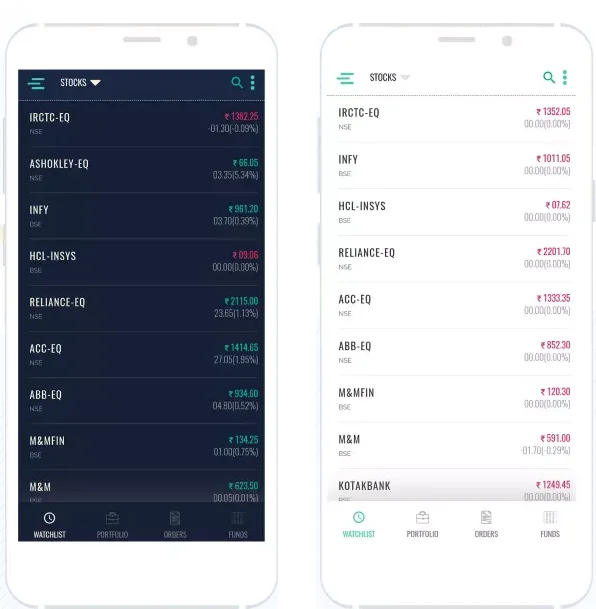The Importance of Knowing Share Market Terminology
Feb 21 2022 5 Min Read

Acquainting yourself with current terminology related to the stock market is a must, for new investors and seasoned traders alike. This essential knowledge is necessary for understanding the share market and how investments are conducted. Moreover, this field-specific jargon is used by equity analysts and market experts to describe the state of the share market. By expanding your share market lexicon, you are equipping yourself with the fundamental know-how of the market and improving your chances of success as an investor or trader.
Stock market or share market terminology refers to the jargon which is commonly used in relation to the markets. These terms are used to break down stock market patterns, indices and trading strategies. For instance, “bull market” and “bear market” are two frequently used terms in the market. Bull market refers to when the economy is stable and the market is on an upward trajectory. Meanwhile, bear market is when the market is experiencing an extended period of decline in price. In order to ensure successful gains in the stock market and to understand economic events better, familiarizing yourself with such jargon is essential. This article aims to introduce and explain some essential terms that can aid you in your share market endeavours.
The ABC’s of The Share Market
Here is a glossary of stock market terms that you should know as a trader or an investor:
Agent:
In the share market, an agent is the brokerage firm that performs the buying and selling of stocks on behalf of the investor.
Ask/Offer:
The ask or offer is the lowest market price the owner is ready to sell an equity share at.
At the money:
This term refers to a scenario where an option’s strike price is the same as the market price of its underlying asset.
Bear Market:
This is a period during which the prices of equity shares is on a decline for a prolonged duration.
Broker:
A broker is an intermediary who conducts the sale and purchase of stocks on behalf of the investor, in exchange for a commission.
BullMarket:
When stock prices are on the rise for an extended period of time, the market is a bull market.
Beta:
Beta is a measure of the relationship between stock market movements and the price of an equity share. Market beta is 1, and if the beta of a stock is greater than one, it is considered riskier than the market.
Bid:
A bid is the highest price that a buyer agrees to pay for a certain stock.
Blue Chip Stock:
This term refers to equity shares offered by solid companies which have stable finances and high market capitalization.
Board Lot:
Every exchange board determines a standardized trading unit that depends on the price of each share. Common board lot sizes are 100, 500 and 1000 units.
Bonds:
This is a fixed income financial instrument that represents a particular amount lent to the bond’s issuer for a pre-determined period of time at a certain interest rate. It is issued by a company or the government.
Book:
This is an electronic record that organizes all the purchase and sale orders of stocks that are pending.
Business Day:
Any given day of the week from Monday to Friday, except for statutory holidays.
Call Option:
Call option refers to the right of the buyer to buy the underlying asset at a particular time at a specific price.
Capital:
Capital refers to an investor’s financial assets in various securities, fixed assets and cash.
Capital Gain or Loss:
This refers to the profit or loss sustained in the process of trading capital assets in the stock market; these include investment property, stocks, etc.
Capital Gains Distribution:
This refers to a distribution of gains by the issuer, which is taxable and typically paid to security-holders of funds, partnerships, trusts,etc. It is paid in cash or securities. The payable date, amount and record date are set by the issuer, and the respective exchange determines the entitlement date.
Certificate:
This is a physical document that represents ownership of a security such as a stock or a bond.
Clearing Number:
This refers to a clearing member or participating organization’s trading number.
Client Order:
When participating organization’s retail customer places an order, it is known as a client order.
Closing Transaction:
This refers to an order for closing out an open options or futures contract.
Close Price:
On a given trading day, this is the final price at which a company’s equity shares are traded or sold.
Commodities:
Commodities are the raw material products used for manufacturing goods, such as oil, timber, agricultural produce, metals, and so on. These are traded on a separate commodities exchange, and they are what futures contracts are based on.
Common Shares:
Common shares are financial instruments that indicate partial ownership or stake in a company, and they typically entail voting privileges for the shareholder. Common shareholders are paid after preferred shareholders, debt holders and creditor’s in case the company liquidates.
Convertible Securities:
Securities like debentures, bonds, preferred stocks which can be converted into other securities of the same issuer are known are convertible securities.
Debentures:
Debentures are another fixed-income investment, and are not backed by any collaterals or physical assets.
Defensive Stock:
Defensive stocks are those which offer stable and consistent returns, regardless of what state the stock market is in. IT, Pharmaceuticals and FMCG are defensive sectors.
Delta:
This refers to the ratio representing the change in a derivative’s price in reaction to a change in the underlying asset’s price. Higher the delta, greater the sensitivity of the derivative to the underlying asset’s price changes.
Diversification:
Diversification is the process of reducing investment risk by investing in a variety of securities from multiple companies in different economic sectors.
Dividends:
This refers to the sum paid by the issuer of a share directly to the shareholder.
Exchange-Traded Fund (ETF):
An ETF is a unique index mutual fund that is actually traded like it is a stock. It allows investors to buy multiple stocks at once through one single instrument, which gives returns similar to those of the corresponding stock market index it tracks.
Face value:
Face value is the cash value or sum of money that the holder of a security earns from the issuer at the date of maturity.
Initial Public Offering (IPO):
An IPO is an issue of shares offered by a company to the general public to raise capital with certain needs in mind.
International Securities Identification Number (ISIN):
This refers to a code that acts as a unique identification for every security. This is the international standard and constitutes two alphabetic characters representing the country code as directed by ISO 6166, followed by 9 alphanumeric characters that are the security identifier, with an ISIN check digit at the end.
Moving Average:
It refers to the average price per unit of an equity share with respect to a specific period of time. Some popular time frames used to study the moving average of a stock include 50- and 200-day moving averages.
One-sided Market:
Market situations where only sellers are present or only buyers are present, but not both simultaneously.
Portfolio:
A portfolio is a document listing all the securities or investments held by an institution or individual, and includes holdings of the investor from different companies as well as sectors in the economy.
Rupee Cost Averaging:
This is the act of investing a set number of rupees in a particular security, at fixed intervals over time. This lowers the average cost of each share, and the investor can buy fewer shares at a time of price hike and more shares when the prices drop.
Short Selling:
This is a trading strategy that involves the seller attempting to sell a security they do not own or have borrowed. The assumed risk is that the investor hopes to buy a certain stock for less than the current price.
Spread:
This is the difference between the ask price and the bid for an equity share. This can be seen as the difference between the price at which you would prefer to purchase the stock and the price at which you would like to sell it.
Volatility:
This refers to the price fluctuations in the market. During a trading session, very volatile stocks experience extreme highs and lows. Risky bets have the potential to bring great gains, if you have the experience to master them. However, they may also result in considerable loss after they crash.
Volume:
This is the number of stocks traded in a particular period on average, such as the daily trading volume.
Yield/Dividend yield:
This refers to the amount paid out by a company in dividends on a yearly basis, in comparison to the stock price.
Frequently Asked Questions
Knowing stock market terminology is necessary for understanding the share market and how investments are conducted. Moreover, this field-specific jargon is used by equity analysts and market experts to describe the state of the share market. In order to ensure successful gains in the stock market and to understand economic events better, familiarizing yourself with it is essential.
Blue Chip Stock refers to equity shares offered by solid companies which have stable finances and high market capitalization.
During a trading session, very volatile stocks experience extreme highs and lows. Risky bets have the potential to bring great gains, if you have the experience to master them. However, they may also result in considerable loss after they crash.
Diversification helps in reducing investment risk by investing in a variety of securities from multiple companies in different economic sectors.
An IPO is an issue of shares offered by a company to the general public to raise capital with certain needs in mind.

